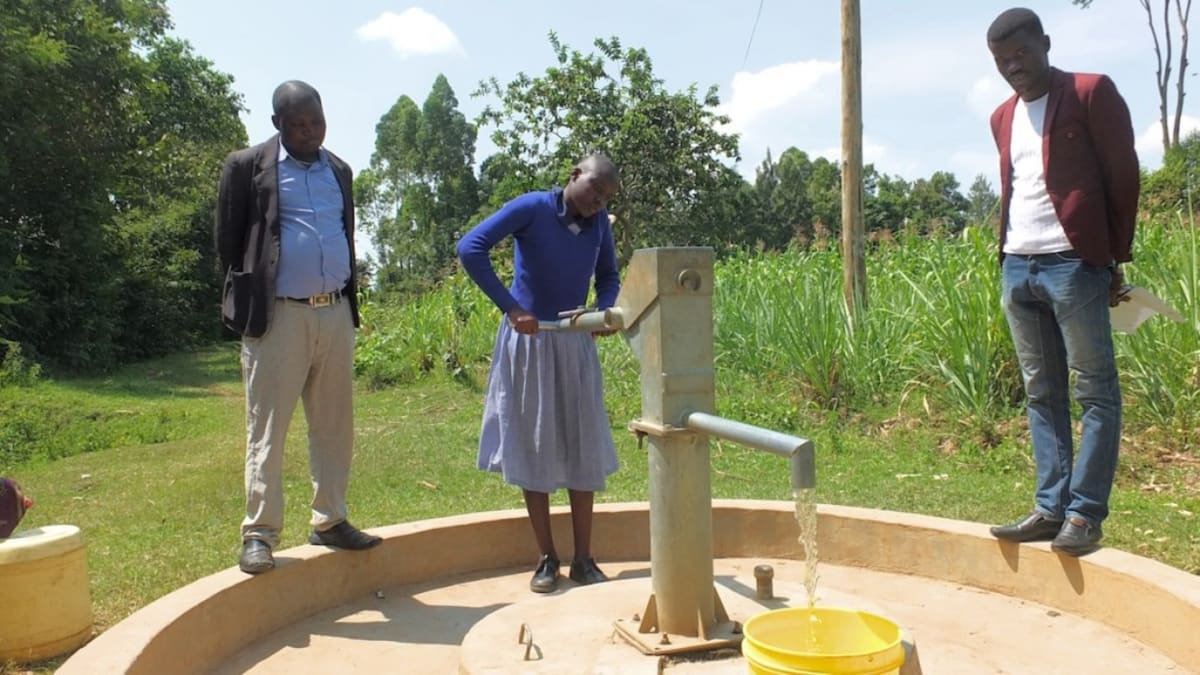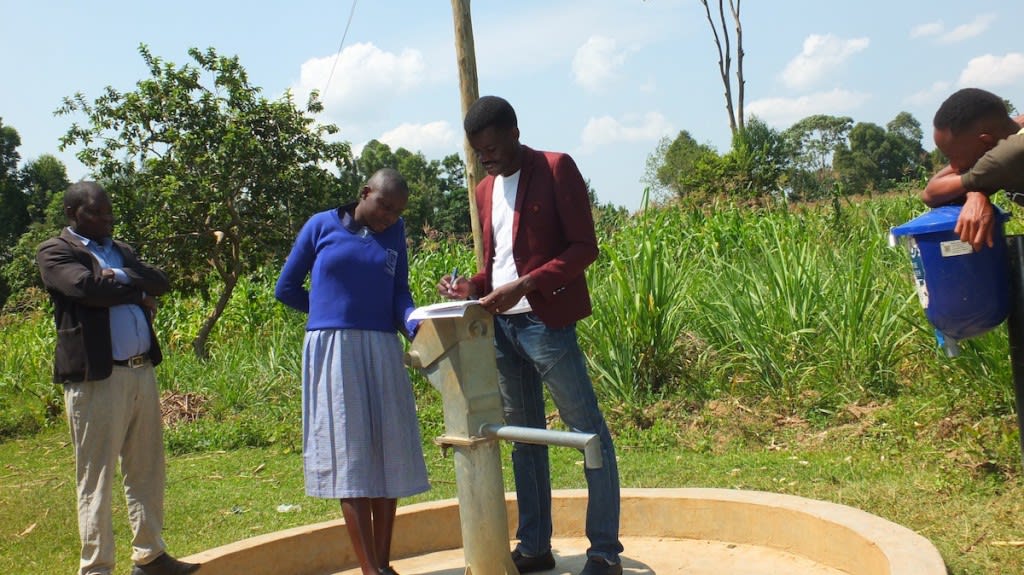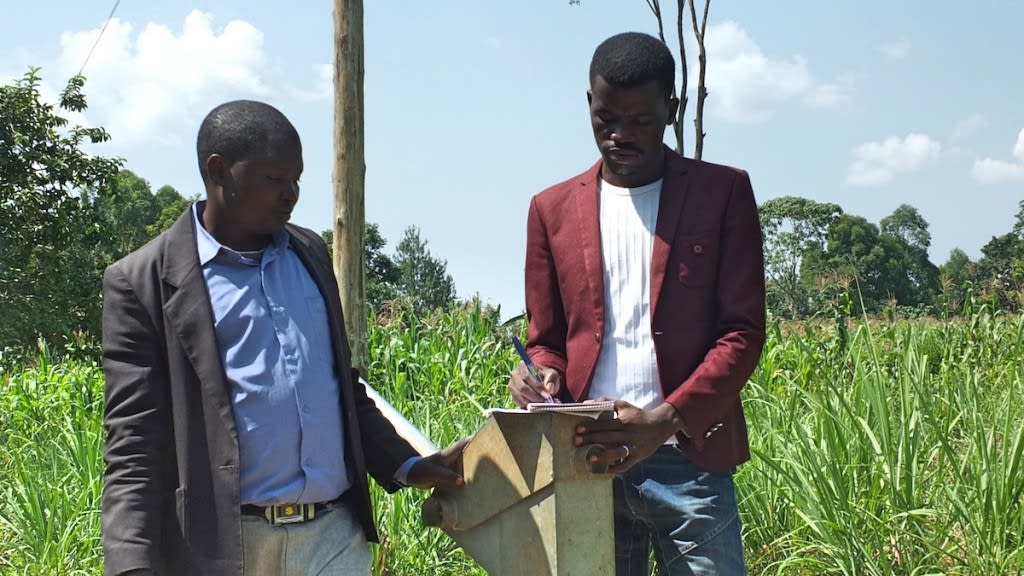This project is a part of our shared program with Safe Water and Sustainable Hygiene Initiative (SAWASHI). Our team is pleased to directly share the below report (edited for clarity, as needed).
Welcome to the School
Shipala Primary School is a public day school started in the year 1998 with sponsorship from the Catholic Church. The school is located in the middle of Shipala Village, surrounded by sugarcane and maize plantations. Grass-thatched houses dot this green landscape. Shipala Primary School now has an enrollment of 490 students and employs 16 teachers and three supplementary staff. There are no pupils from outside the village.
Every morning Monday to Friday, the pupils report to school with hopes of improving their futures. They carry along jerricans for fetching water once at school. Cleaning is done on a daily basis, with sweeping of classrooms and washing of latrines done each evening. A more thorough cleaning is done every Friday evening.
Water Situation
Kenya Finland Company installed a hand-dug well at the school in 1992. School leadership attests that the well has a high water level that never ceases to serve students and staff. However, the well pump is of Nira make, which is very difficult for students to use. They must work very hard for very little yield. Now, the pump doesn't work at all. The well pad has also worn down, so the water inside is no longer protected. Cracks in the cover allow for surface runoff, waste, and other contaminants to flow back inside.
Students line up with their small containers to fetch water one by one, but what is the wait for? Lots of time is wasted fetching water at the old pump to get water that is not even safe to drink. After drinking, outbreaks of typhoid and diarrhea are always reported.
Sanitation Situation
There are 12 pit latrines that are cleaned every evening. They all have wooden doors for privacy, but the pit inside is not covered. This allows flies to enter and leave with contaminants, let alone allows for a terrible odor! There are no hand-washing stations anywhere on school grounds. Environmental hygiene seems to be priority at the sacrifice of students' personal hygiene.
Plans: Hygiene and Sanitation Training
Teachers and students will be trained for two days at the school compound. The facilitator will use the CHAST (Children’s Hygiene and Sanitation Training) method to help students discern between good and bad hygiene habits. Students will be taught how disease is spread at home and at school, and how to prevent this. An entire session will be devoted to teaching students when to wash hands and how to do it properly. Students and staff need to be aware of how dirty hands are spreading illness.
A teacher at Shipala Primary, Mediatrix Nabwire has noticed this, saying, "The school does not observe proper hygiene and sanitation because they lack sanitation facilities such as hand-washing stations. No water treatment method is applied, hence outbreak of diarrhea and typhoid diseases in the school. This has led to poor performance in academics!"
Plans: Hand-Washing Stations
Two hand-washing stations will be delivered to the school so that students can wash their hands after using the latrine and before eating. The school will make sure that these are filled with water and that a cleaning agent is always available.
Plans: Well Rehabilitation
We plan to reconstruct the well that Kenya Finland Company installed in 1992 so that it can again effectively serve the school. This well has a total depth of 11 meters and a static water level of 6.1 meters.
The rehabilitation process will include material collection, pad reconstruction, flushing, test pumping, water quality testing, water treatment, and then pump installation. The new pump will be an AfriDev, since it is easy for student to use and parts for repair are easily acquired.
This will solve the problems shared by the head teacher during our visit: The pump is worn out and it takes a great amount of time for water to flow, therefore making it hard for the pupils to get water and still have time enough for their studies. The spare parts for the Nira pump aren't found locally!
By the end of training and project implementation, Shipala Primary School will have a strong water user committee made up of parents and teachers who will oversee and maintain the rehabilitated well. They have a heart to ensure the well continues to serve generations to come. Without clean water and good health, education and opportunity cannot come first.

 Protected Dug Well
Protected Dug Well






















